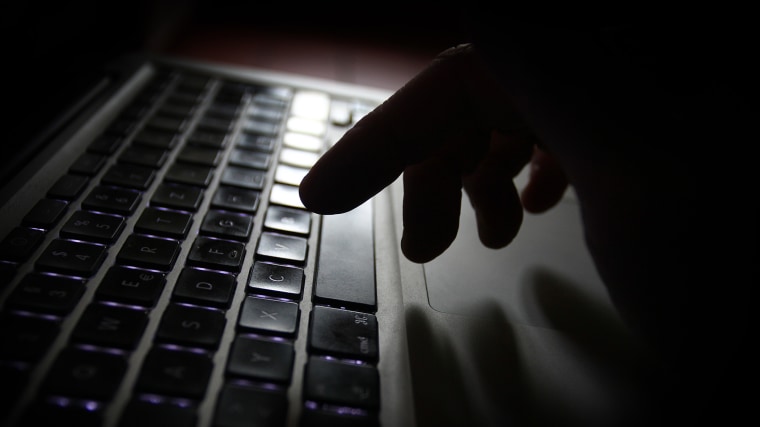At a congressional hearing in February, the top intelligence and law enforcement officials from the Trump administration expressed serious concerns about Russian intentions to once again attack U.S. elections, likely through cyber attacks. Sen. Jack Reed (D-R.I.) then pressed the officials on whether Donald Trump had directed any of them to take "specific actions to confront and to blunt" Russian interference activities.
As regular readers may recall, the administration officials hemmed and hawed, but none pointed to any specific presidential directives.
Two weeks later, something similar happened: the head of the National Security Agency said he had not been authorized by Trump to disrupt Russian cyber-attacks targeting our elections.
And yesterday, the Trump White House went just a little further, eliminating the job of the nation's cyber-security czar.
Trump signed an executive order rearranging the federal information technology infrastructure that includes no mention of the White House cybersecurity coordinator or of a replacement for Rob Joyce, who said last month that he is leaving the position to return to the National Security Agency, where he previously directed cyber-defense programs. [...]John Bolton, Trump's new national security adviser, has widely been reported to have sought to eliminate the job as part of a top-to-bottom reorganization of the National Security Council. Joyce and his predecessors reported to the president; the senior NSC directors report to Bolton.
The outgoing White House cyber-security coordinator's responsibilities will now shift to two other members of the NSC's team -- one of whom has little background in this area.
Politico, which first raised the prospect of this happening, broke the story yesterday.
A New York Times report added, "Cybersecurity experts and members of Congress said they were mystified by the move.... It was the latest in a series of steps that appeared to run counter to the prevailing view in Washington of cybersecurity's importance."
The cynical among us might be tempted to note that Trump, the beneficiary of a foreign adversary's cyber-attacks on our elections, doesn't seem altogether eager to defend the United States against the next expected offensive.
In fact, as NBC News' report added, Democrats were beside themselves yesterday, with some drafting legislation -- which the Republican majority is likely to ignore -- intended to prevent the White House's change.
Top Democrats on Capitol Hill reacted harshly to the decision. In a statement, Bennie Thompson, D-Miss., ranking Democrat on the House Homeland Security Committee, criticized Bolton for "already wreaking havoc on the National Security Council."With cyber threats ever-changing and growing more sophisticated by the day, there is no logical reason to eliminate this senior position and reduce the already degraded level of cyber expertise at the White House," Thompson said.Sen. Mark Warner, D-Va., vice chairman of the Intelligence Committee, said Tuesday: "We should be investing in our nation's cyber defense, not rolling it back.""We also need to articulate a clear cyber doctrine. I don't see how getting rid of the top cyber official in the White House does anything to make our country safer from cyber threats," Warner said on Twitter.Two Democratic House members, Jim Langevin of Rhode Island, a co-founder of the Congressional Cybersecurity Caucus, and Ted Lieu of California, a member of the Judiciary subcommittee on homeland security, quickly introduced a bill to restore the position, giving it extra authority as head of a National Office for Cyberspace, subject to Senate confirmation.
Nearly a year ago, after a private chat with Russian President Vladimir Putin, Trump announced plans to partner with Russia on a "Cyber Security unit" to help protect American elections. The Republican's decision to scrap the top cyber-security position in the White House isn't quite this bonkers, but it's in the ballpark.
What's more, as Rachel noted yesterday, it's also part of an unfortunate recent pattern surrounding this presidency. Confronted with an Ebola outbreak, Trump's White House parted ways with the official responsible for leading the U.S. response in the event of a deadly pandemic -- and then eliminated the position. After killing the international nuclear agreement with Iran, Trump parted ways with the State Department's top expert on nuclear proliferation, leaving no one to work on Iranian nuclear proliferation at the cabinet agency.
And confronted with the threat of foreign cyber-attacks on the U.S. midterm elections this fall, the Trump White House decides the nation no longer needs a cyber-security czar.
What could possibly go wrong?
